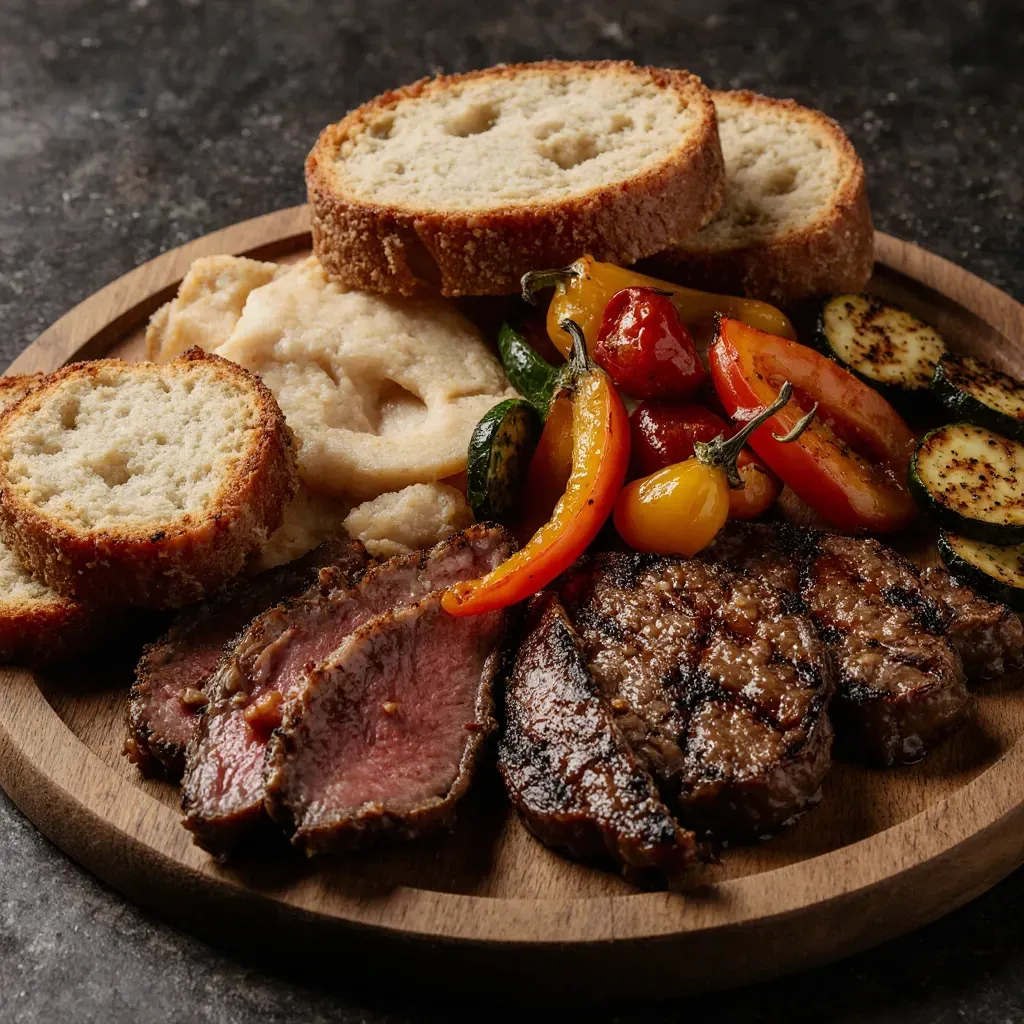
These Cooking Methods Slow AGEing
One of my culinary guilty pleasures is grilled bread, and I've probably eaten more than my weight in grilled chicken in my lifetime.
Unfortunately, that might explain what I see when I look in the mirror.....
Those deliciously browned foods deliver more than flavor. They contain advanced glycation end products, or AGEs, compounds formed when sugars react with proteins or fats at high heat, called the Maillard reaction.
🔥 The dark side of golden brown
Dry heat techniques such as frying, grilling, roasting, baking, and barbecuing generate great amounts of AGEs because they involve high temperatures and low water content, conditions that accelerate browning and glycation.
AGEs can
Stiffen tissueslike collagen in your skin, joints, and blood vessels
Trigger inflammationand oxidative stress
Weaken mitochondria(your cells’ energy engines)
Disrupt insulin and cardiovascular function
Some research suggests AGEs may contribute to Alzheimer’s and “leaky gut.”
💧 Protect yourself with water-based cooking
Steaming, boiling, poaching, and simmering use lower temperatures and higher moisture, preventing the Maillard reaction and dramatically reducing AGE formation.
To put it in perspective:
Pan-fried eggs have 10× more AGEs than boiled
Grilled chicken has 4–5× more than poached
Stir-fried vegetables up to 2.4 times more than boiled
French fries? Up to 90× more than boiled potatoes
Water-based cooking also preserves nutrients like vitamins C and B, and cancer-fighting compounds such as glucosinolates in vegetables.
🥗 It’s not just how you cook, it’s what you cook
Animal-based foods rich in fat and protein—grilled steak, fried chicken, bacon, or processed cheese—produce the most AGEs.
Sugary baked goods are another major source since sugar fuels glycation both in cooking and in your body.
Plants naturally contain fewer AGEs, thanks to their water, fiber, and antioxidant content. Polyphenols from berries, green tea, or herbs like rosemary and turmeric, along with vitamins like C and E, work together to counteract the damage.
Try these simple strategies to reduce AGEs.
👨🍳 Use leaner cuts of meat, add acidity with lemon juice or vinegar, cook with more moisture, and limit sugary glazes.
👨🍳 Marinate foods 30-60 minutes in lemon or lime juice, vinegar, yogurt, wine, or tomato to lower surface pH and slow the Maillard reaction. Marinate meat at least an hour before cooking. Finish with a quick sear instead of using prolonged high heat.
👨🍳 Pair herbs, spices, and polyphenol-rich foods with careful cooking techniques to maximize nutrients while minimizing harmful compounds.
👨🍳 Air fry instead of deep-fry--less fat, lower temperature, fewer AGEs.
👨🍳 Use a slow cooker or pressure cooker for low-heat, high-moisture meals.
👨🍳 Swap fatty meats for lean protein:
High-AGEs foods: Red meat, dark meat poultry, and certain cheeses and fats like butter contain high levels of AGEs.
Lower-AGE alternatives: Lean poultry, fish, and legumes are better options.
👨🍳 Limit processed snacks and baked goods. They’re high in AGEs.
Pairing the right foods with the right cooking techniques gives your body one of its best defenses against aging--from the inside out!